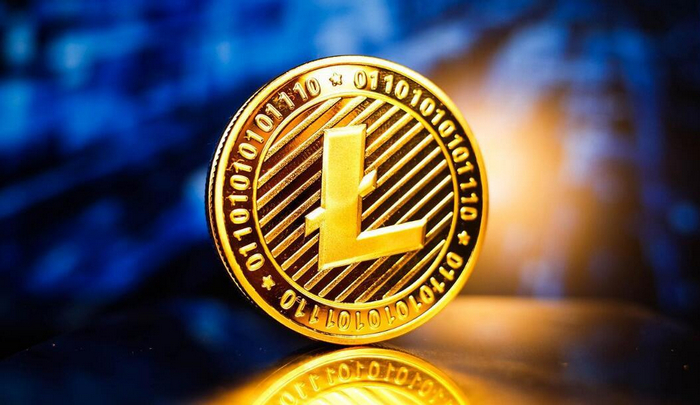-
 Bitcoin
Bitcoin $85,432.9288
1.79% -
 Ethereum
Ethereum $1,649.6917
4.88% -
 Tether USDt
Tether USDt $0.9998
0.02% -
 XRP
XRP $2.1536
5.14% -
 BNB
BNB $597.8131
1.68% -
 Solana
Solana $131.9809
8.56% -
 USDC
USDC $0.9998
-0.02% -
 Dogecoin
Dogecoin $0.1673
4.09% -
 TRON
TRON $0.2464
1.29% -
 Cardano
Cardano $0.6584
4.54% -
 Chainlink
Chainlink $13.1780
3.20% -
 UNUS SED LEO
UNUS SED LEO $9.3148
-0.92% -
 Avalanche
Avalanche $20.3113
5.55% -
 Sui
Sui $2.3682
6.16% -
 Toncoin
Toncoin $3.0573
2.57% -
 Stellar
Stellar $0.2446
3.67% -
 Shiba Inu
Shiba Inu $0.0...01255
2.22% -
 Hedera
Hedera $0.1736
2.64% -
 Bitcoin Cash
Bitcoin Cash $350.1162
12.19% -
 MANTRA
MANTRA $6.2518
-2.41% -
 Litecoin
Litecoin $79.0634
2.95% -
 Polkadot
Polkadot $3.7139
4.02% -
 Hyperliquid
Hyperliquid $16.5232
3.77% -
 Dai
Dai $1.0002
0.01% -
 Bitget Token
Bitget Token $4.4055
1.69% -
 Ethena USDe
Ethena USDe $0.9991
0.04% -
 Pi
Pi $0.7248
18.16% -
 Monero
Monero $206.8837
1.39% -
 Uniswap
Uniswap $5.5444
5.09% -
 OKB
OKB $53.8997
0.95%
Is LTC worth holding for a long time? How to buy LTC?
Despite its merits, Litecoin's long-term viability as an investment is influenced by market dynamics, competition, and acceptance, weighing its potential for sustained price appreciation against external factors.
Oct 03, 2024 at 05:42 am

Is Litecoin (LTC) Worth Holding for the Long Term?
Litecoin (LTC) is a decentralized digital currency created in 2011 as a faster and cheaper alternative to Bitcoin. It has since gained traction as a store of value and a medium of exchange. However, its long-term viability as an investment is subject to ongoing debate.
Factors to Consider for Long-Term Holding:
- Scarcity and Halving: Litecoin has a finite supply of 84 million coins, with a regular halving mechanism that decreases the block reward every 84 years. This scarcity can contribute to price appreciation over time.
- Transaction Speed and Cost: LTC has faster transaction speeds than Bitcoin, with an average confirmation time of 2.5 minutes. Its transaction fees are also relatively low, making it suitable for small and medium transactions.
- Adoption and Merchant Acceptance: Litecoin has gained moderate adoption among businesses and merchants globally. While it is not as widespread as Bitcoin, its growing acceptance can increase demand and support its long-term value.
- Network Security: Litecoin uses a robust Proof-of-Work algorithm to secure its network. This makes it resistant to hacking and double-spending attacks.
- Competition: Litecoin faces competition from other cryptocurrencies, including Bitcoin and Ethereum. The market landscape can impact its long-term success.
How to Buy Litecoin (LTC):
- Choose a Cryptocurrency Exchange: Select a reputable cryptocurrency exchange that supports LTC.
- Create an Account and Verify Identity: Sign up for an account and complete the required identity verification process.
- Deposit Funds: Deposit funds into your exchange account using fiat currency or another cryptocurrency.
- Place a Buy Order: Navigate to the LTC trading page and place a buy order for the desired amount of LTC.
- Store Your LTC: Withdraw your LTC from the exchange and store it in a hardware wallet or a software wallet for long-term safekeeping.
Disclaimer:info@kdj.com
The information provided is not trading advice. kdj.com does not assume any responsibility for any investments made based on the information provided in this article. Cryptocurrencies are highly volatile and it is highly recommended that you invest with caution after thorough research!
If you believe that the content used on this website infringes your copyright, please contact us immediately (info@kdj.com) and we will delete it promptly.
- Cryptocurrency giant Binance is reportedly deepening its ties with the Trump family
- 2025-04-13 05:10:12
- Virtual Magnet Motor Innovator Volektra Raises New Funding to Commercialize Its Technology
- 2025-04-13 05:10:12
- Wayfinder (PROMPT), Magic Internet Money (MIM) tokenize the Bitcoin Wizards (WZRD) community
- 2025-04-13 05:05:12
- China Hits Back at Trump’s Tariffs, Says U.S. Market Not Essential
- 2025-04-13 05:05:12
- Bitcoin Shows Signs Of Stabilization Amid Global Uncertainty
- 2025-04-13 05:00:12
- Will Dogecoin Ever Hit $1? Latest Predictions and What to Watch For
- 2025-04-13 05:00:12
Related knowledge

What is Ethereum’s Slashing mechanism and how to punish malicious behavior?
Feb 20,2025 at 03:08am
Key PointsOverview of slashingDifferent types of slashing in EthereumIncentives and consequences of slashingIdentifying and reporting slashed validatorsOngoing discussions and potential improvementsEthereum's Slashing Mechanism: Punishing Malicious BehaviorEthereum's slashing mechanism is an essential tool for ensuring network security and punishing mal...

What is the verifier node of Ethereum and how to become a verifier?
Feb 19,2025 at 06:00pm
The Verifier Node of Ethereum: A Comprehensive GuideKey Points:What is a Verifier Node?How to Become a Verifier NodeResponsibilities and Rewards of a Verifier NodeMinimum Requirements for Becoming a Verifier NodePotential Difficulties in Running a Verifier Node1. What is a Verifier Node?A Verifier Node is an independent entity on the Ethereum network th...

What is Ethereum’s staking, and how to participate and earn money?
Feb 19,2025 at 04:37pm
Key Points:Understanding Ethereum's Staking MechanismSteps to Participate in StakingBenefits and Rewards of StakingSecurity and Risk ConsiderationsTechnical Requirements and Hardware OptionsPotential Challenges and Troubleshooting TipsFAQs on Ethereum StakingWhat is Ethereum's Staking?Proof-of-Stake (PoS) is a consensus mechanism used in blockchain netw...

What is Ethereum’s DAO (Decentralized Autonomous Organization) and how does it work?
Feb 20,2025 at 03:12am
Key PointsDefinition and Structure of a DAOGovernance and Decision-Making in DAOsBenefits and Use Cases of DAOsChallenges and Limitations of DAOsWhat is Ethereum's DAO (Decentralized Autonomous Organization) and How Does It Work?Definition and Structure of a DAOA Decentralized Autonomous Organization (DAO) is an innovative governance and management fram...

What is Ethereum's multi-signature wallet and how to improve security?
Feb 20,2025 at 02:18pm
Key Points:Understanding the Concept of a Multi-Signature WalletBenefits and Drawbacks of Multisig WalletsRequirements for Setting Up a Multisig WalletStep-by-Step Guide to Generating a Multisig WalletImplementing Strategies for Enhanced Security1. Understanding the Concept of a Multi-Signature WalletA multi-signature (multisig) wallet in the Ethereum e...

What is Ethereum's oracle and how to provide data for smart contracts?
Feb 21,2025 at 01:30am
Key Points:Understanding the concept of oracles in EthereumExploring different types of oraclesDetailed guide on how to provide data for smart contractsAddressing potential challenges and considerationsWhat is Ethereum's Oracle?Oracles are crucial components in the Ethereum ecosystem, enabling smart contracts to access real-world data and off-chain even...

What is Ethereum’s Slashing mechanism and how to punish malicious behavior?
Feb 20,2025 at 03:08am
Key PointsOverview of slashingDifferent types of slashing in EthereumIncentives and consequences of slashingIdentifying and reporting slashed validatorsOngoing discussions and potential improvementsEthereum's Slashing Mechanism: Punishing Malicious BehaviorEthereum's slashing mechanism is an essential tool for ensuring network security and punishing mal...

What is the verifier node of Ethereum and how to become a verifier?
Feb 19,2025 at 06:00pm
The Verifier Node of Ethereum: A Comprehensive GuideKey Points:What is a Verifier Node?How to Become a Verifier NodeResponsibilities and Rewards of a Verifier NodeMinimum Requirements for Becoming a Verifier NodePotential Difficulties in Running a Verifier Node1. What is a Verifier Node?A Verifier Node is an independent entity on the Ethereum network th...

What is Ethereum’s staking, and how to participate and earn money?
Feb 19,2025 at 04:37pm
Key Points:Understanding Ethereum's Staking MechanismSteps to Participate in StakingBenefits and Rewards of StakingSecurity and Risk ConsiderationsTechnical Requirements and Hardware OptionsPotential Challenges and Troubleshooting TipsFAQs on Ethereum StakingWhat is Ethereum's Staking?Proof-of-Stake (PoS) is a consensus mechanism used in blockchain netw...

What is Ethereum’s DAO (Decentralized Autonomous Organization) and how does it work?
Feb 20,2025 at 03:12am
Key PointsDefinition and Structure of a DAOGovernance and Decision-Making in DAOsBenefits and Use Cases of DAOsChallenges and Limitations of DAOsWhat is Ethereum's DAO (Decentralized Autonomous Organization) and How Does It Work?Definition and Structure of a DAOA Decentralized Autonomous Organization (DAO) is an innovative governance and management fram...

What is Ethereum's multi-signature wallet and how to improve security?
Feb 20,2025 at 02:18pm
Key Points:Understanding the Concept of a Multi-Signature WalletBenefits and Drawbacks of Multisig WalletsRequirements for Setting Up a Multisig WalletStep-by-Step Guide to Generating a Multisig WalletImplementing Strategies for Enhanced Security1. Understanding the Concept of a Multi-Signature WalletA multi-signature (multisig) wallet in the Ethereum e...

What is Ethereum's oracle and how to provide data for smart contracts?
Feb 21,2025 at 01:30am
Key Points:Understanding the concept of oracles in EthereumExploring different types of oraclesDetailed guide on how to provide data for smart contractsAddressing potential challenges and considerationsWhat is Ethereum's Oracle?Oracles are crucial components in the Ethereum ecosystem, enabling smart contracts to access real-world data and off-chain even...
See all articles
























































































